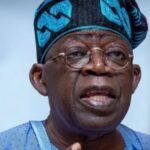President Muhammadu Buhari’s administration will come to an end today, May 29, 2023 after 8 years.
Coming into power in 2015, Buhari under the change mantra, promised Nigerians a better deal than what then President Goodluck Jonathan’s administration offered.
Buhari, a member of the All Progressives Congress (APC), will hand over to his party member, Bola Ahmed Tinubu, whose election victory as declared by the Independent National Electoral Commission, (INEC) is being contested in the court.
- Read more: Full Text: Tribunal releases Obi’s pre-hearing report
- Full Text: Tribunal releases Atiku’s pre-hearing report
The outgoing president, Buhari, made several promises to Nigerians ranging from infrastructure, security, inclusive government to a better economy that would foster business growth amongst others.
After 8 years in office, the question remains, did Nigerians get what they ordered under Buhari’s administration?
President Buhari has maintained that his administration is one of the best things that happened to the country. His government has consistently claimed that it has fulfilled nearly all of its promises to Nigerians. Although, many would disagree.
Nevertheless, agreement or disagreement to President Buhari’s claims depends on whom you are asking, as opinions about his government’s performance are sharply divided.
In his farewell address to the nation on May 28, Buhari declared, “I am confident that I am leaving office with Nigeria better in 2023 than in 2015.”
Does the economic data Buhari is leaving behind support this claim?
Inflation: In May, 2015 when Buhari came into office, the inflation rate was 9.0%. The inflation rate for April 2015 was 8.9%. Under Buhari, inflation rate hit 22.22% in April 2023, the highest since 2009 as the data released by the National Bureau of Statistics (NBS) showed. It has been on double digit since February 2016.
Unemployment rate: Under Buhari, unemployment rate rose from 10.4% in 2015 to 33.3%, the highest in the last 13 years and the largest in the world. According to NBS, the unemployment rate among young people (15- 34years) was 42.5%, the highest when compared to other age brackets.
Total debt: Nigeria’s total public debt has skyrocketed under Buhari administration N12.06 in the first quarter of 2015 to N46.25 trillion as at December 2022, according to the data from Debt Management Office, (DMO). This excludes support provided by the Central Bank amounting to N25trillion, N5.567 trillion representing about 50% of the new borrowing of N11.134 Trillion in the 2023 Appropriation Act as well as New Promissory Notes estimated at N1.5 Trillion. Buhari will leave in over N77 trillion debt.
- Read also: Senate sits on Saturday, increases Ways and Means borrowing from 5% to 15%
- Legacy projects inaugurated by President Buhari
- 37 years between the Buhari regimes… Economic lamentations remain the same
Poverty level: 65% per cent of the Nigerian population, or almost 95 million people, live below the poverty line, according to NBS report. Similarly, the 2022 Multidimensional Poverty Index survey revealed that: 63% of persons living within Nigeria (133 million people) are multidimensionally poor.
Exchange rate: In November 2015, barely six months after Mr Buhari was inaugurated as president, the naira exchanged at N197 per dollar. Now, the exchange rate is about N750 per dollar in the parallel market (black market) and N461.45 per dollar at the official market which is rarely available.
Monetary Policy Rate (MPR): The benchmark for interest rates in the country, MPR has risen from 12.5% in 2015 to 18.5% in May 2023.
Debt servicing: Under Buhari’s administration, debt servicing has risen from N1.06 trillion in 2015 to N5.24 trillion as of 2022. In fact, under President Buhari’s administration, the debt-service-to-revenue ratio grew from 29% to 96%.
Fuel subsidy: under Buhari, about N10 trillion has been spent on the controversial fuel subsidy, as he failed to act on his plan to remove it.
Oil production: The nation’s oil production was at its peak of 2.13 million barrels per day in 2015, the year president Buhari took over. However, it slumped to 1.084mbpd in July 2022 and slipped below one million barrels per day at a time.
Security: The outgoing administration has often claimed that the country is safer today than it was when it took over. Although there has been reports of live returning back to normal in the northeast, there has been increased violent attacks in other parts of the country. Banditry, farmer – herder crisis, kidnapping for ransom have been on the rise. In April 2022, the federal government said that the bandits are collaborating Boko Haram to launch attacks, following Abuja-Kaduna passenger train attack during which nine persons died, scores sustained injuries while over 60 were kidnapped.
With the aforementioned statistics on inflation, unemployment, debt, exchange, poverty level, and so on, one could without doubt conclude that the situation in Nigeria went from bad to worse under president Buhari’s administration. The value of people’s savings and purchasing power were eroded under the outgoing administration. The failed attempt to execute the currency redesign earlier this year exacerbated the crisis in Buhari’s final in office.
Ifunanya Ikueze is an Engineer, Safety Professional, Writer, Investor, Entrepreneur and Educator.






















































